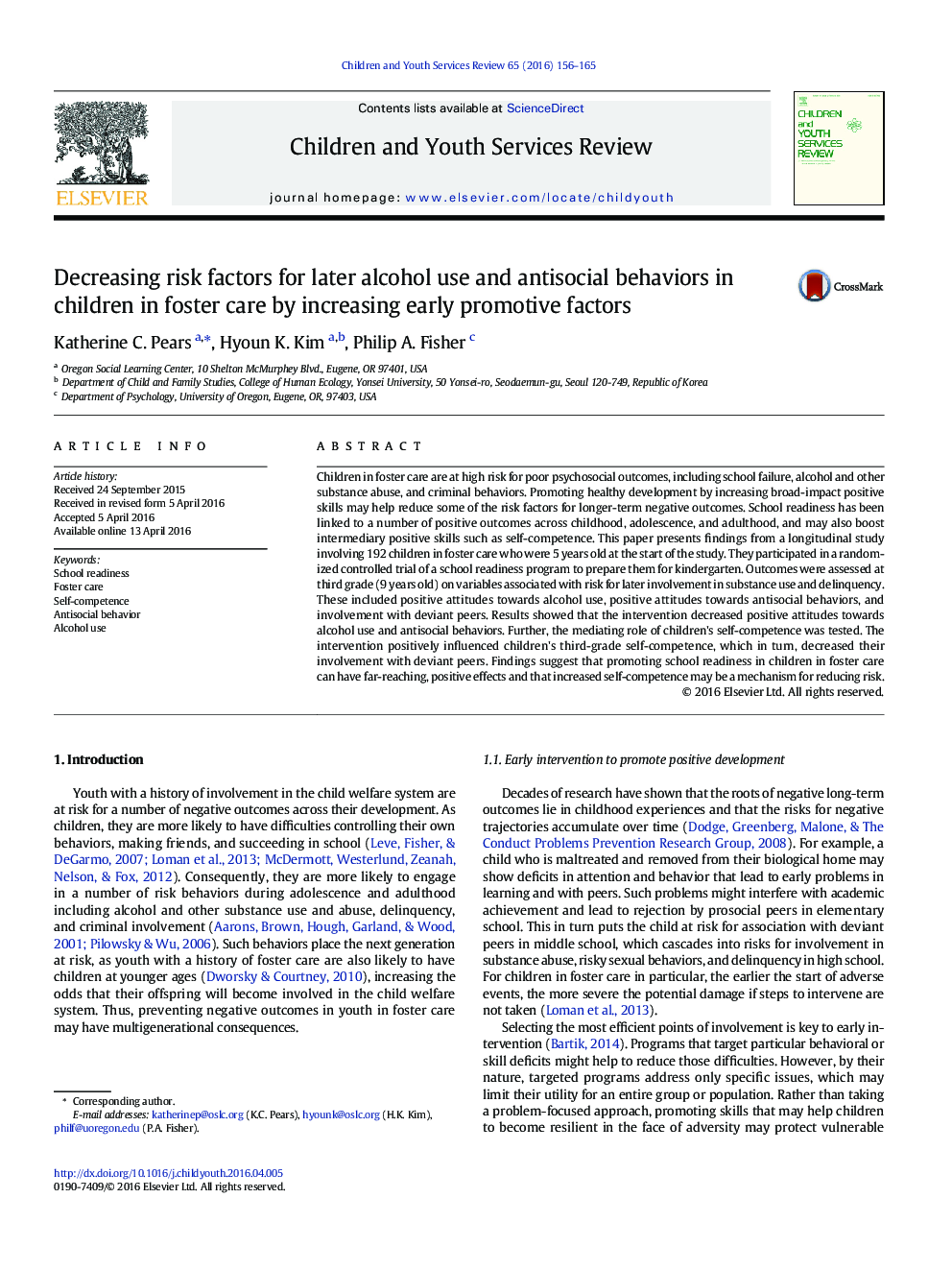| کد مقاله | کد نشریه | سال انتشار | مقاله انگلیسی | نسخه تمام متن |
|---|---|---|---|---|
| 345818 | 617768 | 2016 | 10 صفحه PDF | دانلود رایگان |
• The effects of a school readiness intervention for children in foster care on third grade risk behaviors were examined.
• Third grade self-competence was hypothesized to mediate the association between the intervention and later risk behaviors.
• The intervention directly reduced positive attitudes towards alcohol and antisocial behavior in third grade.
• The intervention increased self-competence in third grade, which then reduced involvement with deviant peers.
• School readiness and self-competence may be promotive factors in preventing foster youths’ involvement in risk behaviors.
Children in foster care are at high risk for poor psychosocial outcomes, including school failure, alcohol and other substance abuse, and criminal behaviors. Promoting healthy development by increasing broad-impact positive skills may help reduce some of the risk factors for longer-term negative outcomes. School readiness has been linked to a number of positive outcomes across childhood, adolescence, and adulthood, and may also boost intermediary positive skills such as self-competence. This paper presents findings from a longitudinal study involving 192 children in foster care who were 5 years old at the start of the study. They participated in a randomized controlled trial of a school readiness program to prepare them for kindergarten. Outcomes were assessed at third grade (9 years old) on variables associated with risk for later involvement in substance use and delinquency. These included positive attitudes towards alcohol use, positive attitudes towards antisocial behaviors, and involvement with deviant peers. Results showed that the intervention decreased positive attitudes towards alcohol use and antisocial behaviors. Further, the mediating role of children's self-competence was tested. The intervention positively influenced children's third-grade self-competence, which in turn, decreased their involvement with deviant peers. Findings suggest that promoting school readiness in children in foster care can have far-reaching, positive effects and that increased self-competence may be a mechanism for reducing risk.
Journal: Children and Youth Services Review - Volume 65, June 2016, Pages 156–165
